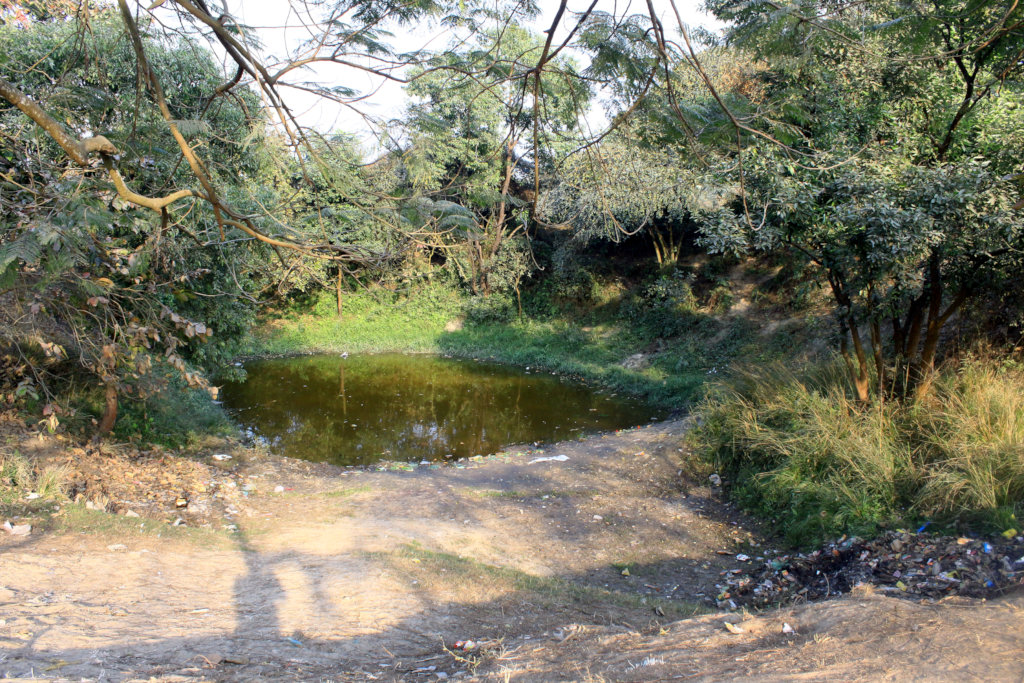By Snehaa Sundaram | Asst. Programme Officer- Wild Aid
Indian roof turtles, (Pangshura tecta) distinguished by the “unique roof” at the peak of their shell is a species spread across the major rivers of South Asia. Distributed widely across the Indian rivers, it was brought to notice that a small population of this shy and still-water loving turtle population in Lota Devi Kali temple’s pond in Jalpaiguri, a popular city of West Bengal was under grave danger. This Schedule- I species ( Wildlife Protection Act, 1972) is one among the last few surviving populations of the species outside a Protected Area in the city of Jalpaiguri and needed immediate rescue.
Habitat loss and degradation are some major factors harming freshwater turtles across India, these animals who often climb onto logs and rocks to bask are often exploited for pet trade as well as meat, shells, and oil which are used in traditional medicine globally. Although the Wildlife Protection Act 1972 lists this species of turtles under schedule 1, making their capture, possession, and trade illegal. Still, they are being caught and are being killed for meat. Lota Devi Kali temple, situated on the banks of the Karala River in Jalpaiguri, West Bengal is a home for a population of 20 individuals of the Indian roofed turtles. The overflowing water of the monsoons connects the pond and the river, thereby providing a perfect breeding ground for the population. However, during the dry climatic period, the turtles restrict themselves to a small pool behind the temple.
According to Hindu mythology, turtles are revered as an incarnation of Lord Vishnu and are worshipped by several devotees. The annual religious fair and daily rush of devotees to the temple pours in constant offerings of milk, Vermillion, incense sticks and oil spillage from lamps into the pond, choking the turtles to death and damages their habitat. In addition to this threat, domestic dogs and the general public also resorted to stealing eggs, hunting hatchlings and trading their meat. To immediately address the problem and save the remaining few individuals Wildlife trust of India with the support of their donors planned to address this issue.
Considering the cultural significance of the temple and turtles on this site, it was pertinent to engage the temple authorities and forest department with the conservation measures to be implemented. Community participation is the key to sustenance of any wildlife conservation initiative in a region. A barb wire fence was constructed around the peripheral area of the pond with sufficient space for turtles to move in and out between the pond and river. Reinforced concrete pillars were installed to provide extra support and stability in the clayey soil. This was carried out to stop the entry of poachers and other miscreants from approaching the pond area. Dredging was done to clean the pond. Local aquatic and semi-aquatic species, fishes etc were introduced in the location to create the necessary habitat for the turtles. A suitable sand bed was also set up by the eastern side of the pond to provide the best habitat for nesting. Additionally, to divert devotees from pouring their offerings directly into the pond a small turtle temple is being built near the holy pond. The idol is currently being designed by local artisans and temple installation shall be completed soon. This will set aside a designated area for offerings and maintain the pond habitat.
With the help of the temple authorities, regular monitoring and awareness are being created amongst the general public. Segregation of biodegradable and non-biodegradable matter will further help to keep the habitat clean. Devotees have already begun placing their offerings outside the fenced area. This is the first step towards the success of this project. August-September being the nesting period; we are certain this initiative will provide a safe habitat for these turtles and protect them.
Project reports on GlobalGiving are posted directly to globalgiving.org by Project Leaders as they are completed, generally every 3-4 months. To protect the integrity of these documents, GlobalGiving does not alter them; therefore you may find some language or formatting issues.
If you donate to this project or have donated to this project, you can receive an email when this project posts a report. You can also subscribe for reports without donating.
Support this important cause by creating a personalized fundraising page.
Start a Fundraiser